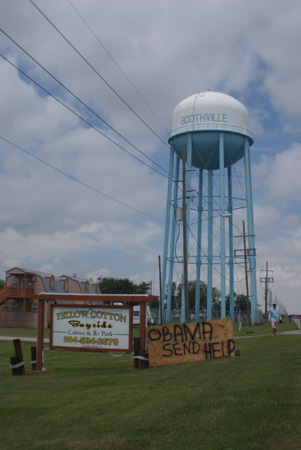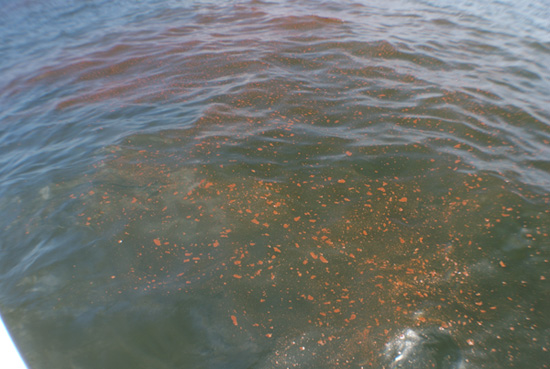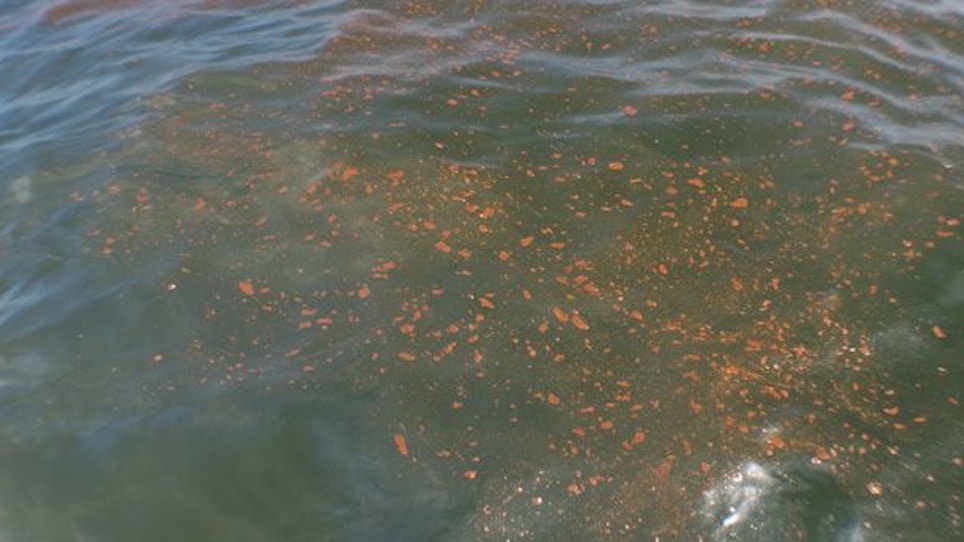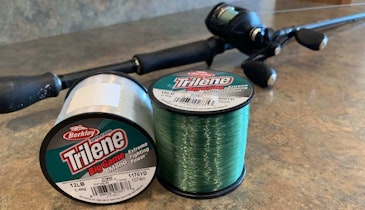I feel compelled to come to Louisiana to report the stories and rumors of the Deepwater Horizon Oil Spill from the recreational angler’s perspective. This is one of the greatest ecological and economical tragedies the Gulf coast, and the world in general, has ever experienced.
 |
| Louisiana Communities like Boothville base almost their entire economies on the faith in a clean and vibrant eco-system and Gulf. |
Jon Brett, Western Florida Director for the Snook Foundation, and I hitched a ride on Friday with the Ocean Conservancy crew and Damon McKnight of Super Strike Charters – Damon is also a member of the NMFS Gulf Council. I didn’t know what to expect. I knew we would see some things out of the ordinary, but I had no idea what we had in store.
As we cast off and headed out of Venice, the media circus was in full-swing back on the dock. Satellite trucks lined the Venice Marina parking lot instead of trailers and boats. But the impending doom and gloom the talking heads were trying to report was just not there and some Venice captains were trying their hardest to paint a lighthearted stroke of veneer on a slowly darkening situation. Boats were still running and fish were still filleting, but something didn’t quite seem right with the fishermen’s hyperbole and the talking heads’ disinterest.
After a thirty-minute run, we headed out of South Pass and into the Gulf. Before we hit the mouth of the pass, though, we started to taste and smell a very odd and palpable flavor in the air. The texture was purely chemical, but what: none of us could put a finger on it. We steamed east for five miles and the smell grew. The air took a heavy feeling, and then we saw it.
The slick, from a distance, appeared like saragasso-line floating down a rip. However, as we got closer, TJ Marshall screamed, “We got oil.” However this wasn’t a Eureka! moment, but more of an oh, crap moment.
What we found were thousands of football-sized orange, dispersant-filled tar-balls floating and coagulating on the surface. And although nature typically can see through a man-made farce (how many times have you had a buck stare right at your camouflage hangout?), pelicans and seagulls were working the slick line–apparently fooled as we were.
The chemical, Corexit, which is being used as the dispersant agent, has been rumored to have been banned in the UK because it is proven toxic to humans and marine life. So what do you think? Are the risks versus rewards worth the health of our Gulf? What should the groups responsible for cleaning up this spill do? For the oil field guys, what were the safety precautions y’all had to use when employing Corexit?

This is the view for miles around. The Corexit is working to disperse the top oil, but sonar
shows a floating disaster ten-feet down.






